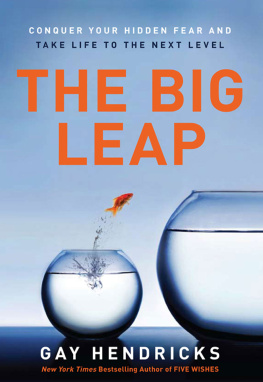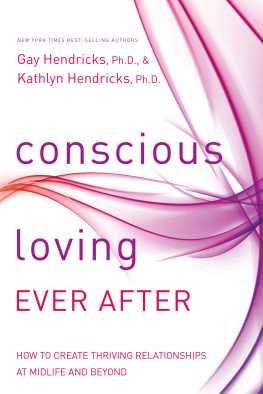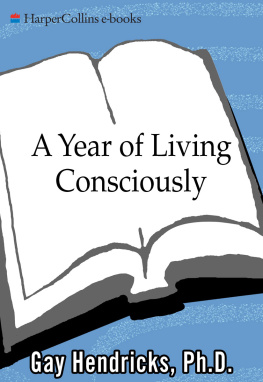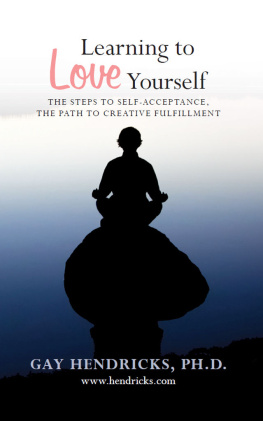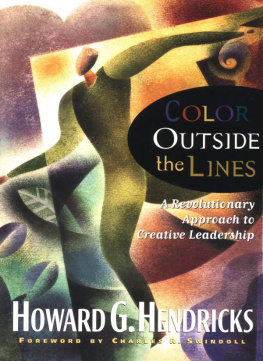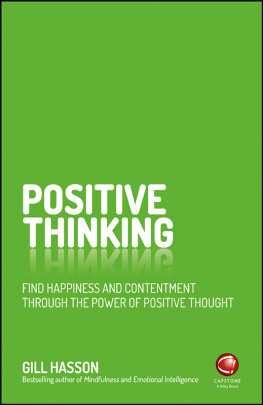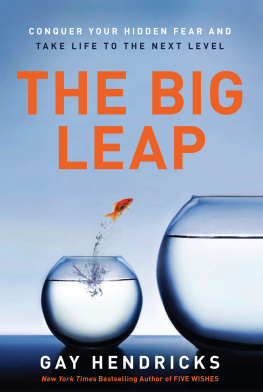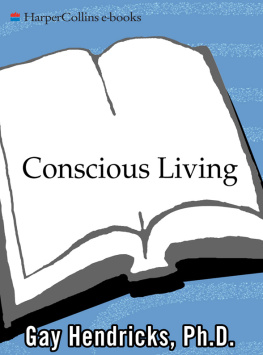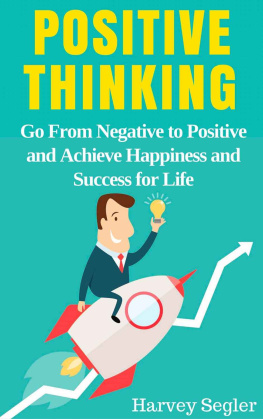Gay Hendricks, Ph.D.
Remove Your Last Obstacle to Ultimate Success in Wealth, Work, and Love
THE ONE PROBLEM THAT HOLDS YOU BACK
I call it the Upper Limit Problem, and I havent met a person yet who didnt suffer at least a little bit from it. Even if youre already extravagantly successful, I can promise you that your own version of the Upper Limit Problem is still holding you back from achieving your true potential. In fact, the more successful you get, the more urgent it becomes to identify and overcome your Upper Limit Problem. If you dont clear the Upper Limit Problem out of your way, it will be a drag on you until the day you die. I know those words may sound blunt, but if our positions were reversed, Id want you to be just that blunt with me.
Ive taken the risk of speaking that bluntly to many people who were already quite successful. I did so not because they were paying me a consulting fee, but because it is part of my lifes mission to help people go the last distance to claim their full potential. Michael Dell, founder of Dell Computer and one of the youngest self-made billionaires in history, is among the most brilliant people Ive ever met. I had the pleasure of doing executive coaching with him and other members of his team during the nineties, at a time when the company was beginning to grow by leaps and bounds. The quality I most appreciate about Michael is his openness to learning. Many high-level executives Ive known are saddled with an equally high degree of defensiveness and a deep need to be right all the time. Not Michael. He doesnt put on the brakes when new learning is coming at him. He doesnt have the tendency, shared by many CEOs, to resist change and do more of what obviously isnt working.
Michael embraces every opportunity to grow, and his remarkable success is testimony to the power of that point of view. Thats the kind of openness to learning Id like you to bring to our explorations together in this book.
Michael Dell wasnt born with his gift. None of us is. To get to that level of undefended openness to learning, we have to practice as diligently as a master skier or a master cellist. To make the kind of leaps Michael Dell makes, we must practice a specific skill. That skill is to identify and transcend our Upper Limit, wherever and whenever we encounter it. We will hone this skill ceaselessly throughout the book. As Michael and others now know, the Upper Limit Problem is the only problem we need to solve. They dedicated themselves to solving it and made the Big Leap. The results speak for themselves.
Along the path to the Zone of Genius, all of them learned the same life-changing secret you will learn in this book: the glass ceiling they were operating under is held in place by a single problema barrier they didnt know they had. Once they saw the one problemand how to solve itthey were free to go beyond ordinary success to a new and extraordinary level of abundance, love, and creativity in their lives.
Once you understand the one problem and how to solve it, you can do far more than increase your net financial worth: you can make quantum shifts in the amount of love you feel and the amount of creativity you express. I mention this point because Ive learned that it is essential to keep the heart-and-soul elements of lifesuch as love and creativitygrowing in balance as you go to higher levels of material success. It makes no sense to take your Big Leap into greater financial success in such a way that it destroys your relationships, your inner sense of yourself, and your connection to your inner wellspring of creativity. Many people have made that error, and the result is never pleasant to behold. Life is at its best when love, money, and creativity are growing in harmony.
In this book I want to talk to you directly, just as if you were sitting across from me, one-on-one. I may not know you personally, but based on my years of consulting, I believe I know a great deal about you. I imagine that you sense a huge unrealized potential in yourself, an extraordinary level of success you know you can achieve. I also imagine that you worry about falling short of achieving the ultimate success you can see, taste, and smell. If you feel that way, youre on the threshold of perhaps the greatest opportunity of your life. Youre about to make a discovery that will remove the barrier between you and your ultimate success. I can make that promise to you because long before I helped other people enhance their own abundance, love, and creativity, I was my own best customer. From the moment of discovery until now, I have used the method I describe in this book to make all my own wishes and dreams come true.
THE MOMENT OF DISCOVERY
My original discovery happened early in my career, when I was working as a research psychologist at Stanford University. It was the moment I caught the first glimmer of the realization that would change my life so profoundly. Heres what happened:
I had just returned to my office from lunch with a friend, and wed spent a congenial hour talking about the projects we were working on. My work was going well, and I was happy in my relationships. I leaned back in my chair and gave myself a good stretch, letting out a sigh of relaxed satisfaction. I felt great. A few seconds later, though, I found myself worrying about my daughter, Amanda, who was away from home on a summer program she had very much wanted to attend. A slide show of painful images flickered through my mind: Amanda sitting alone in a dorm room, Amanda feeling lonely and miserable away from home, Amanda being taunted by other kids. The inner joy disappeared from my body as my mind continued to produce this stream of images. Thinking something might be wrong, I grabbed the phone and called the dorm where she was staying. Her dorm supervisor told me Amanda was fine; in fact, she could see out the window to where Amanda was playing soccer with some other girls. The kindly supervisor told me it was normal for parents to worry about kids away from home; indeed, she said I was the third parent to call that day with similar concerns. Really? I said, surprised. Why do you think that is? She gave a wise chuckle: You dont realize how much you miss her, so you think she must be hurting somehow. Plus, you probably had experiences yourself of being lonely away from home, so you think she must be having the same experience.
I thanked her and hung up. I felt a bit foolish, but I also knew that something important had just happened. I sat there wondering, How did I go from feeling good in one moment to manufacturing a stream of painful images in the next? Suddenly the light of awareness dawned on me: I manufactured the stream of painful images because I was feeling good! Some part of me was afraid of enjoying positive energy for any extended period of time. When I reached my Upper Limit of how much positive feeling I could handle, I created a series of unpleasant thoughts to deflate me. The thoughts I manufactured were guaranteed to make me return to a state I was more familiar with: not feeling so good. Worrying about children away from home is always a handy way to feel bad, but I knew that if I hadnt pulled up those particular worry-thoughts, I would have used some other train of thought to dampen my mood.
I remember almost dancing with excitement as I applied this insight to different parts of my life such as relationships and health. Once I saw the pattern, it became obvious how it worked: I would enjoy a period of relationship harmony, then stop the flow of connection by criticizing or starting an argument. The Upper Limit Problem showed up even in my eating habits: I would eat healthy food and get plenty of exercise, feeling great for several days in a row. Then Id go on a weekend binge of restaurant food, wine, and late nights that would leave me feeling dull and bloated. The pattern was simple: enjoy a period of feeling really good; then do something to mess it up. I also realized that the same pattern had a grip on the world at large. As humans, we would enjoy a period of peace, then plunge into a war; wed create a time of economic expansion, then go into recession or depression. Everywhere I looked, I saw evidence of the pattern. Eventually I reined in the wild horses of my imagination and focused on the key step every researcher begins with: stating the problem to be solved and the questions to be answered.

